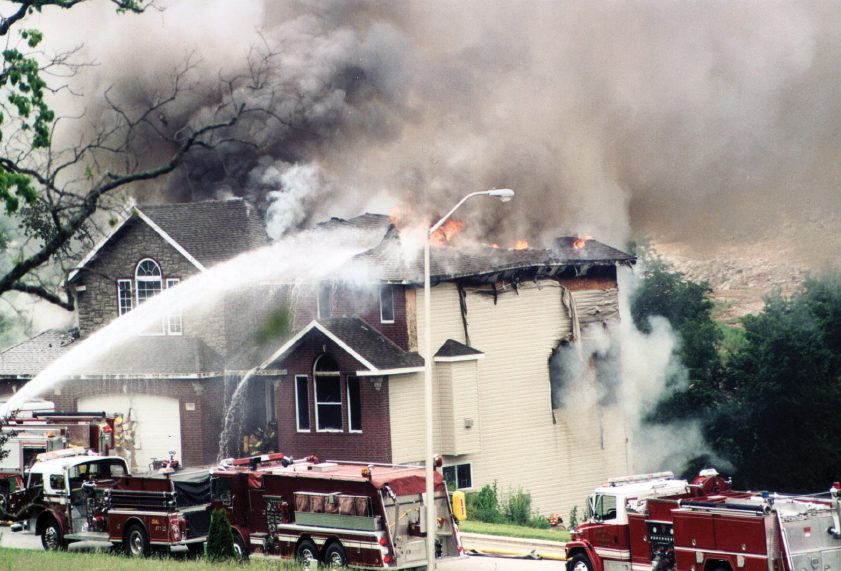Public Adjusting Services
Residential
Review your insurance policy thoroughly and develop clear goals in relation to it.
Determine the scope and extent of the damages to your home and necessary repair.
Test for asbestos and lead with regard to building damage and contents contamination.
Prepare a replacement cost estimate that substantiates what is owed under the claim
Hire experts when necessary to evaluate building damage and document repairs
Inventory and assess damage to personal property for loss valuation purposes.
Utilize professional appraisals for specialty items, i.e., rare books, art, antiques, collections and etc.
Prepare, present, adjust and settle the insured’s agreed value settlement, while exploring all of their options under the policy, including cashing out.
Present additional living expenses, loss of use, fair rental value or loss of rental income claims for the insured post loss, and through completion of repairs subject to the insurance company’s agreement.
Secure monies agreed to under the claim through the completion of repairs, including: code upgrade claims, replacement cost benefits/recoverable depreciation for betterment, supplemental and or additional claims not previously submitted – from permitting through the repair process to completion.
Commercial
Provide a comprehensive review of your insurance policy and coverage as it applies to you loss and provide a proactive claim strategy that maximizes your financial recovery.
Assist you in complying with your policy’s requirements, such as mitigating further damage and being aware of time and coverage limitations.
When tenant leasehold improvements are involved, help determine how those improvements should be presented as part of the overall building loss and claim (i.e., some improvements may fall under Business Personal Property coverage, not the building coverage per se).
Conduct a thorough evaluation of your loss, carefully researching, detailing and substantiating every aspect of your claim and recovery.
When appropriate, in the course of evaluating the loss, hire construction and equipment consultants to provide expertise and claim support.
Work as your advocate at all inspections and meetings with your insurance company when appropriate.
In support of securing the best financial settlement in the shortest period of time, work to achieve your own goals and objectives every step of the way.
Business
Review and assess your insurance program and provide a claim strategy that is sound and effective. This includes helping the insured with business relocation and or partial operations at a new or temporary location.
Document all facets of your property and insured losses, including: damage to building, custom installations unique to your business, tenant improvements and betterments (which may be valued separately), business personal property inventories, including stock and equipment, customer goods, and work in process.
Hire outside experts when beneficial if not necessary.
Help develop a sound business recovery plan with the approval from the insurer, utilizing your insurance money wisely, to set up temporary operations, or to permanently relocate your business when possible. The insured has the obligation to mitigate the loss at all times during the period of indemnity.
Work with the insured to comply with all requirements under the insurance policy provisions and establish a diary of agreements and costs that will be covered in the claim.
Document and prepare the insured’s loss of business income and extra expense claims with the assistance of a forensic accountant, when the policy provides loss of income coverage and the loss period is subject to time or dollar limitations, or both.
Work closely with the insured paying particular attention to coverage limitations so the insured does not end up spending down their policy benefits unnecessarily.
In anticipation of the insured reopening their business and preserving their customer base, work strategically with the insured using business income and extra expense coverage to enhance and support customer relations, while mitigating the business income loss, to the extent possible.
Crown Adjusting Services
Areas of Loss
| • Fire | • Sudden breakage |
| • Earthquake | • Flood |
| • Windstorm and rain | • Theft |
| • Roof collapse | • Vandalism |
| • Hail | • Hurricane |
| • Physical Damage |
Property Coverage Terms and Conditions
Insurance policies contain complex terms and language that is unfamiliar and confusing. Every claim begins with a review and an understanding of the terms and conditions of the insurance policy itself. Although most insurance policies contain the same policy language and policyholder requirements, each policy will have specific coverage limitations, and/or extensions of coverage, as well as differing loss settlement provisions. Understanding the nuanced differences in policy language, and applying a proactive claim strategy, will have a direct bearing on the claim valuation, as well as the insured’s financial settlement. The insurance policy is a road map. Proactively understood, it provides the basis for an insured’s claim strategy under the best and worst conditions since there are instances in which the property coverage is deficient, and the insured is unable to recover dollar for dollar what is owed in the claim.
Insurance policies contain complex terms and language that is unfamiliar and confusing. Every claim begins with a review and an understanding of the terms and conditions of the insurance policy itself. Although most insurance policies contain the same policy language and policyholder requirements, each policy will have specific coverage limitations, and/or extensions of coverage, as well as differing loss settlement provisions. Understanding the nuanced differences in policy language, and applying a proactive claim strategy, will have a direct bearing on the claim valuation, as well as the insured’s financial settlement. The insurance policy is a road map. Proactively understood, it provides the basis for an insured’s claim strategy under the best and worst conditions since there are instances in which the property coverage is deficient, and the insured is unable to recover dollar for dollar what is owed in the claim.
Measurement Of the Damages As Of The Date Of Loss
Establishing the damages after a loss is the policyholder’s responsibility. The insurance company adjuster will begin the process of preparing an estimate for the insurance company, not for the insured. Frequently, the insurance company’s preliminary estimate of repair becomes the basis for a settlement, and the insured is at a distinct disadvantage not knowing what may be missing or incorrectly stated in the adjuster’s scope of repair. The measure of loss and damage in every building claim is a function of the agreed scope of repair, taking into account hidden damage, like kind and quality – materials and workmanship, and unit cost pricing that appropriately reflects today’s repair (or replacement) costs, as well as the additional requirements imposed by building code and ordinance. Presenting a detailed and complete claim package for insurance purposes is a precursor to reaching a full and fair agreed settlement with your insurance company. There are other costs that need to be taken into account also like hazardous materials abatement and demolition. Costs to restore or repair your damaged building, may require plans and engineering, when the damage is structural as well as cosmetic. These costs are also subject to the claim adjustment with your insurer. Knowing what will be required and a condition of permitting the necessary repairs, may also significantly increase the costs of repairs.
Establishing the damages after a loss is the policyholder’s responsibility. The insurance company adjuster will begin the process of preparing an estimate for the insurance company, not for the insured. Frequently, the insurance company’s preliminary estimate of repair becomes the basis for a settlement, and the insured is at a distinct disadvantage not knowing what may be missing or incorrectly stated in the adjuster’s scope of repair. The measure of loss and damage in every building claim is a function of the agreed scope of repair, taking into account hidden damage, like kind and quality – materials and workmanship, and unit cost pricing that appropriately reflects today’s repair (or replacement) costs, as well as the additional requirements imposed by building code and ordinance. Presenting a detailed and complete claim package for insurance purposes is a precursor to reaching a full and fair agreed settlement with your insurance company. There are other costs that need to be taken into account also like hazardous materials abatement and demolition. Costs to restore or repair your damaged building, may require plans and engineering, when the damage is structural as well as cosmetic. These costs are also subject to the claim adjustment with your insurer. Knowing what will be required and a condition of permitting the necessary repairs, may also significantly increase the costs of repairs.
Documentation Of The Loss & Claim
Documenting your claim without professional help will be tedious, time-consuming and burdensome. When we are involved in your claim process, we take the entire responsibility of dealing with the insurance company off your shoulders. We begin the claim evaluation process with the insurance company’s participation, establishing common goals and objectives in the near term, while planning for the longer term ahead. The basis of every successful adjustment is developed through meticulous analysis, recording and presentation. Every claim, every insurance company and every adjuster working for or with an insurance carrier has his or her own agenda. Their own approach to establishing the loss for the insurance carrier changes frequently, based on the claims personnel that supervise and approve what is paid out to the insured. Without an experienced and test proven public adjuster on your side, promoting your own interests at every phase of the claim process, your claim and eventual settlement can be significantly understated.
Documenting your claim without professional help will be tedious, time-consuming and burdensome. When we are involved in your claim process, we take the entire responsibility of dealing with the insurance company off your shoulders. We begin the claim evaluation process with the insurance company’s participation, establishing common goals and objectives in the near term, while planning for the longer term ahead. The basis of every successful adjustment is developed through meticulous analysis, recording and presentation. Every claim, every insurance company and every adjuster working for or with an insurance carrier has his or her own agenda. Their own approach to establishing the loss for the insurance carrier changes frequently, based on the claims personnel that supervise and approve what is paid out to the insured. Without an experienced and test proven public adjuster on your side, promoting your own interests at every phase of the claim process, your claim and eventual settlement can be significantly understated.
Reaching An Agreement With Your Insurer
Every aspect of the insured’s claim is subject to the terms and conditions of the insurance policy, so every claim payment made by the insurance company is based upon information presented and agreed to by you, the insured. Accepting a check from your insurance company does not preclude you from challenging the insurance company’s claim offer, but the insured must communicate with their insurance company and advance their own claim requests, in writing, particularly when the insured can demonstrate that the insurance company’s claim calculation is woefully inadequate. When a public adjuster is managing the claim for the insured, you should expect that many factors leading to an undervalued claim will be avoided altogether. A seasoned and experienced public adjuster, representing the insured, effectively knows what to do to avoid many of the pitfalls that arise out of a claim managed solely by your insurance company and/or their representatives. Your claim and eventual settlement will not be approved or finalized without your expressed permission and a public adjuster’s work is not complete until every dollar owed and agreed upon is memorialized in the claim.
Every aspect of the insured’s claim is subject to the terms and conditions of the insurance policy, so every claim payment made by the insurance company is based upon information presented and agreed to by you, the insured. Accepting a check from your insurance company does not preclude you from challenging the insurance company’s claim offer, but the insured must communicate with their insurance company and advance their own claim requests, in writing, particularly when the insured can demonstrate that the insurance company’s claim calculation is woefully inadequate. When a public adjuster is managing the claim for the insured, you should expect that many factors leading to an undervalued claim will be avoided altogether. A seasoned and experienced public adjuster, representing the insured, effectively knows what to do to avoid many of the pitfalls that arise out of a claim managed solely by your insurance company and/or their representatives. Your claim and eventual settlement will not be approved or finalized without your expressed permission and a public adjuster’s work is not complete until every dollar owed and agreed upon is memorialized in the claim.
Why Choose Us
We evaluate claims we are best suited for and for clients that customarily prefer to work with the individuals they meet at the point of sale, so they know who will be handling their claim from beginning to end. Property claims include residential claims, custom homes, residential and commercial apartment buildings, office complexes, retail businesses and an array of industrial and mercantile properties, large and small. We do not offer our services to clients if we cannot devote 100% of our expertise, time, and energies to help. As such we are personally involved in every claim we handle. This simple and test proven business model works, just ask current or former clients.
What Clients Say
“It never occurred to me that the insurance company protecting me against loss for years was now immediately at cross purposes after my historic Victorian residence burned in Berkeley. It’s all quite logical when you think about it, I paid my insurer thousands of dollars over the years but now it’s real money to them and their goal is to pay as little as possible, without being obvious about it. I was one of the people Robert could not formally represent because I was substantially “underinsured”. However, Robert helped me anyway, by showing me how I could enlist my insurer’s help to cover several claim related expenses and preserve my limited coverage for actual repairs. This strategy protected me from shorting my own insurance settlement, even before it was agreed too. Robert knew I would need every penny and found $70,000.00 in additional claim benefits through creative thinking and negotiation. I could never have rebuilt my Victorian without this needed money and I assure you it would not have been offered. If you want to maximize your settlement so you’re not building on a tight budget or you just don’t want to handle the months of red tape and paperwork, I cannot recommend Robert highly enough. Not only was I able to rebuild my Historic Queen Ann Victorian to its original splendor, I also won recognition in 2014 from the Berkeley Architectural Heritage Association in the process, and made sure Robert got credit too for his invaluable assistance.”



